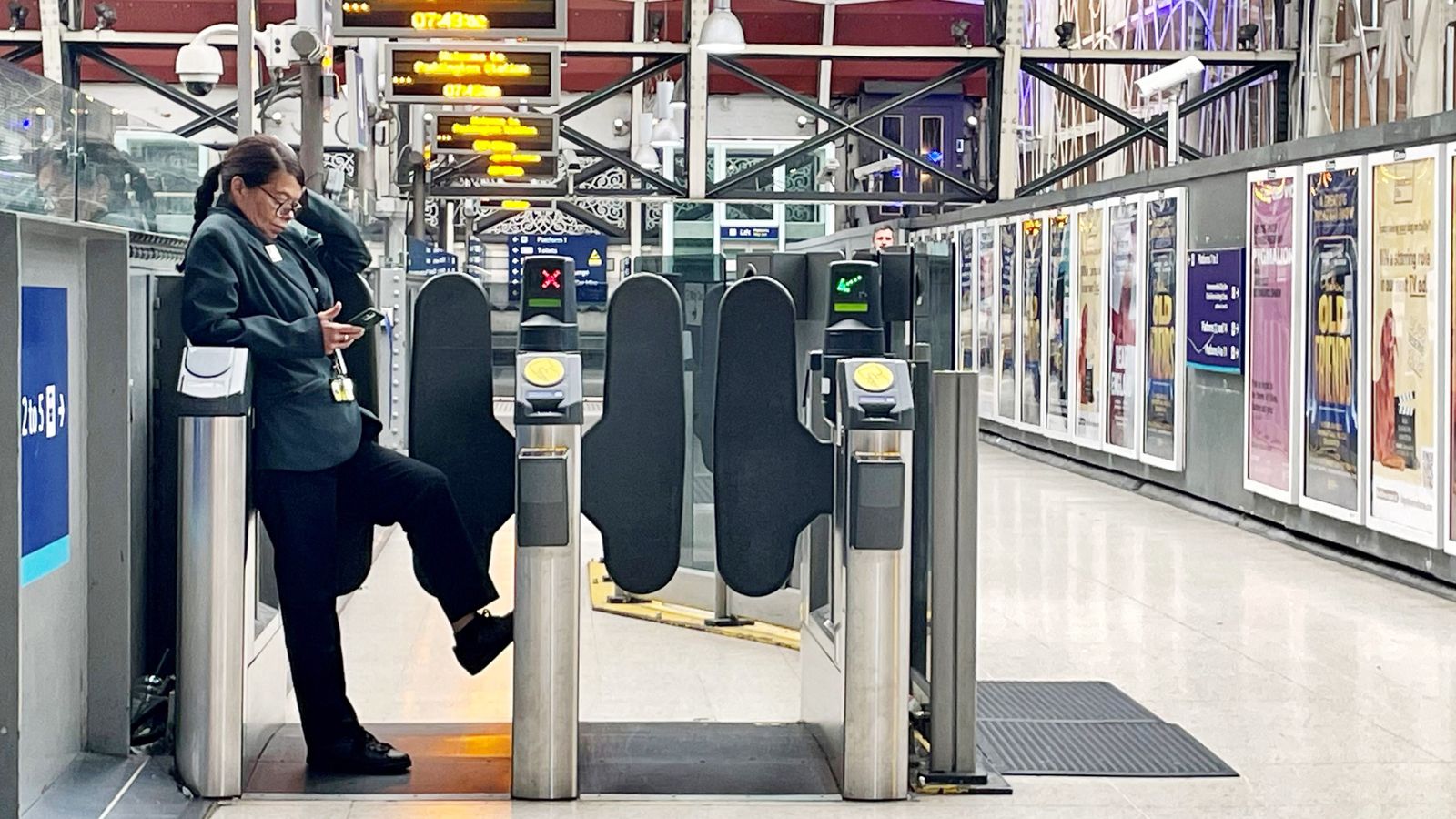New train drivers’ strike to coincide with Conservative Party conference in Manchester

Train drivers will take strike action on 30 September and 4 October to coincide with the Conservative Party’s conference in Manchester, a union has announced.
Aslef said the companies affected by the strikes include Avanti West Coast, Chiltern Railways, c2c, CrossCountry, East Midlands Railway, Greater Anglia, GTR Great Northern Thameslink, Great Western Railway, Island Line, LNER, Northern, Southeastern, Southern/Gatwick Express, South Western Railway, TransPennine Express and West Midlands Trains.
As well as striking, drivers on the rail network will also follow an overtime ban on 29 September and from 2 to 6 October – which the union said would “seriously disrupt the network” due to what they said was the privatised train firms’ failure to “employ enough drivers to provide a proper service”.
Labour insists any migrants quota deal with EU must ‘work’ for UK – politics latest
The fresh industrial action will come as a blow for Rishi Sunak, who will have his first Conservative Party conference as leader and prime minister disrupted by separate strikes by junior doctors and consultants.
Transport Secretary Mark Harper immediately criticised the new strikes and accused them of being “politically motivated”.
Posting on X, formerly known as Twitter, he said there was an “offer on the table” to increase their pay to £65,000.
“Still they strike, putting their own jobs at risk,” he wrote.
Mick Whelan, Aslef’s general secretary, said that while union members “regret having to take this action – we don’t want to lose a day’s pay or disrupt passengers as they try to travel by train – the government, and the employers, have forced us into this position”.
Advertisement
He added: “Our members have not had a pay rise for four years – since 2019 – and that’s not right when prices have soared in that time.
“Train drivers, perfectly reasonably, want to be able to buy now what they could buy four years ago.”
Junior doctors and consultants in England announced they will take joint strike action for the first time over four days across this month and next – including on 4 October.
The strikes by Aslef are just the latest development in the ongoing battle between the union and the government over pay and working conditions.
There has already been severe disruption to the rail network this summer, with a 24-hour strike in early September coinciding with the last weekend of the summer holidays.